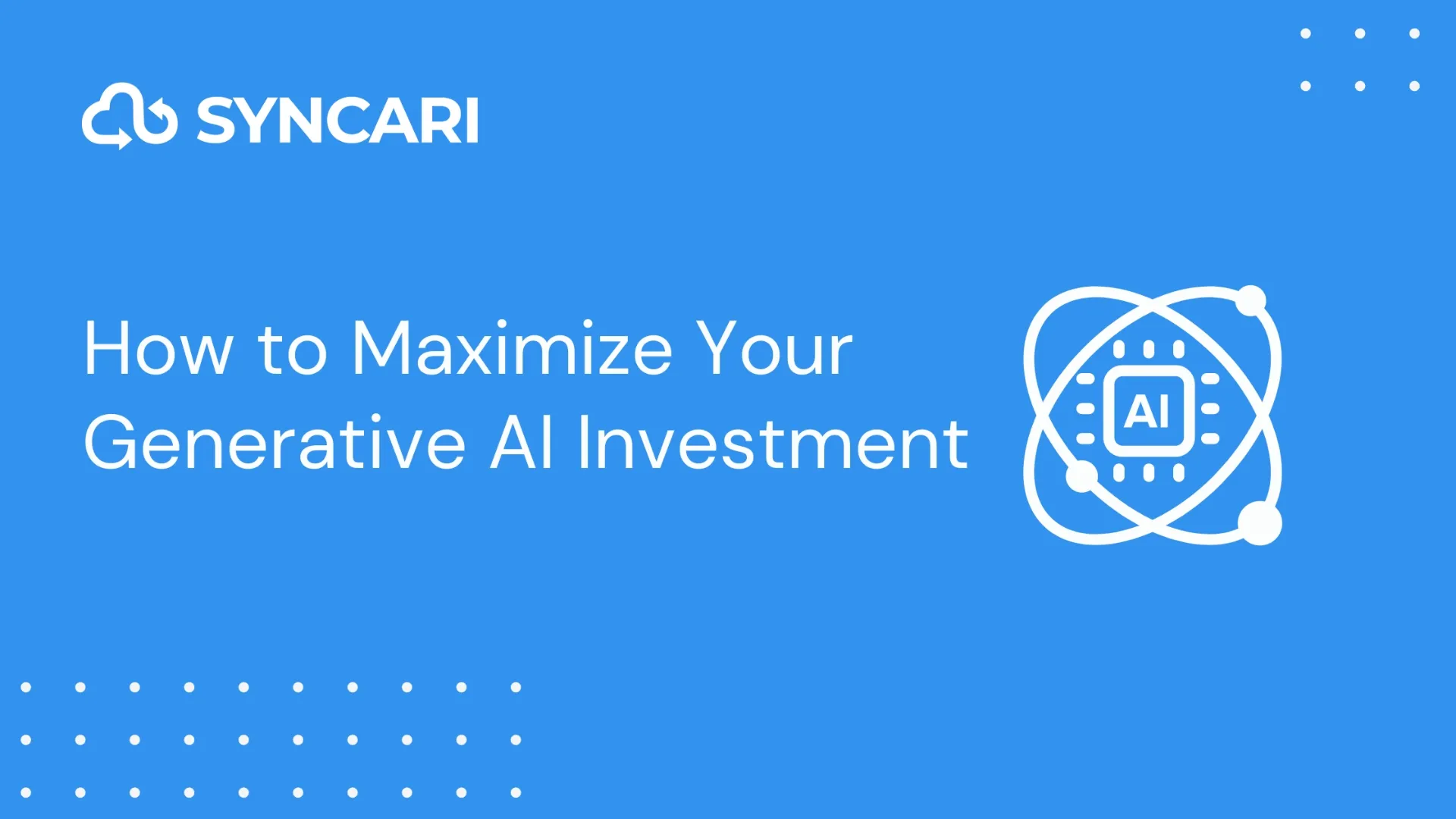Leverage Generative AI (GenAI) for a competitive advantage by establishing strong metadata practices, enhancing data literacy and GenAI skills, assessing GenAI capabilities before implementation, and quantifying GenAI investments to determine their strategic deployment.
Notably, 2023 was a transformative year for enterprise data management, witnessing the integration of generative AI technologies across various facets according to The Software Report.
Harnessing Generative AI for Competitive Advantage:
Generative AI is becoming essential for organizations aiming to maintain a competitive edge. It revolutionizes data management by democratizing data access, enhancing pattern discovery, and reimagining data platforms, enabling more people to gain actionable insights and make data-driven decisions.
In fact, Salesforce’s latest State of IT report found that 86% of IT leaders expect generative AI to soon play a prominent role at their organizations. And, the company’s March survey of 500 IT decision makers revealed that most (57%) believe generative AI is a “game changer.” Yet, Generative AI can’t yet integrate with their business’s tech stack (60%).
Here’s how to get your data AI-ready.
Building a Strong Metadata Practice:
Metadata, or data about data, is crucial in managing and utilizing enterprise data effectively. Overcoming the challenges of underutilized metadata by implementing robust management strategies can enhance the accuracy and effectiveness of GenAI solutions, unlocking the full potential of data assets.
Fostering Data Literacy and GenAI Skills:
Empower your workforce by building data literacy and specific GenAI skills. Training in safe usage of emerging technologies and recognizing potential pitfalls, such as data misinterpretations by AI (often referred to as “hallucinations”), is vital. This prepares your organization to leverage GenAI for innovation and growth.
Evaluating GenAI-Enabled Data Management Capabilities:
Before adopting GenAI-enabled solutions, thoroughly evaluate vendor capabilities and ensure they meet your business needs. Deployment should only proceed if the solutions meet stringent criteria for accuracy, quality, security, and privacy, with ongoing validation processes in place.
Quantifying the Value of GenAI Investments:
Measure the near and midterm value of GenAI by comparing costs with potential gains in technology, personnel, and process improvements. This analysis helps determine the optimal timing for integrating GenAI into your technology roadmap, ensuring maximum return on investment.
Impact of Generative AI on Data Management:
Generative AI transforms data management by enabling broader data access, uncovering new patterns, and enhancing platform capabilities. These advancements allow for more profound insights and improved data quality, which are critical for making informed business decisions.
Improving Data Quality and Governance:
Enhance data quality through advanced metadata extraction and implement strict governance policies. Platforms like Data Mesh and Composable Customer Data Platforms are evolving to support unstructured data and improve data quality for GenAI applications, ensuring reliable and bias-free outputs.
Overcoming Implementation Challenges:
Address potential challenges in GenAI implementation, such as cloud migration and choosing the right technology stack, while ensuring human oversight remains integral to prevent errors and ensure successful integration.
Why Data Management and Generative AI Are Perfect Together:
The synergy between data management and GenAI creates opportunities for generating synthetic data, enhancing data quality, and facilitating better decision-making. This powerful combination addresses challenges related to data volume, complexity, and governance, driving innovation and maximizing data asset value.
By prioritizing strong metadata practices, data literacy, thorough evaluation of GenAI capabilities, and strategic investment quantification, organizations can fully harness the potential of Generative AI. This approach not only drives innovation and decision-making but also ensures sustainable growth in a data-centric business environment. Syncari’s commitment to data privacy and adherence to industry regulations guarantees that sensitive data remains protected, reinforcing the secure application of GenAI in enterprise data management.



